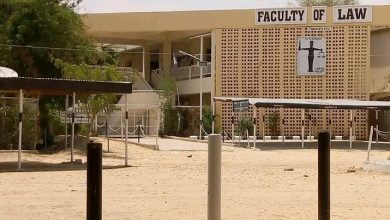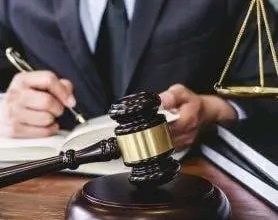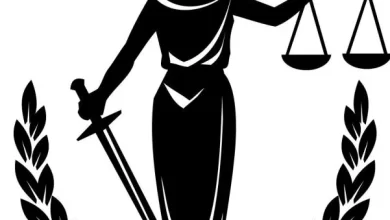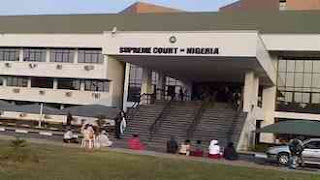Rights of An Accused Person in Nigeria
In this article we shall be looking at THE CONSTITUTIONAL RIGHTS OF AN ACCUSED PERSON IN A CRIMINAL TRIAL.
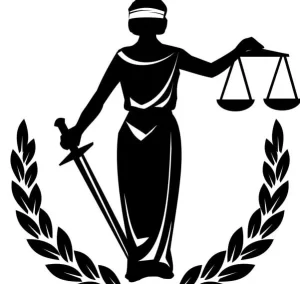
Table of Contents
Right of Accused Person in Criminal Trial
Rights of accused, in law, the rights and privileges of a person accused of a crime, guaranteeing him a fair trial.
literally, Accused person is the person charged with an offense; the defendant in a criminal case. However, rights of accused person is fundamental, it is a group of rights that have been recognized by a high degree of protection from encroachment.
These rights are specifically
identified in a Constitution, or have been found under Due process of law. Right of an accused person are mainly
contained in the right to fair hearing provision of the Nigerian Constitution e.g, Right to Fair hearing, presumption of innocence, Right to be Informed on Time in Details the Nature of the Offence he has Committed in the Language he Understands, Right to be given adquate
time and facilities for the preparation of his defence, inter alia: The aim of this article is to explicitly explain those Rights in lines with the provision of 1999 Constitution of Federal Republic of Nigeria.
Right to Fair hearing
By virtue of section 36(4) Whenever any person is charged with a criminal offence, he shall, unless the charge is withdrawn, be entitled to a fair hearing in public within a reasonable time by a court or tribunal. It was also decided by Per J. S.C. Per Karibi Whyte, J. S.C. in RAYMOND S.
DONGTOE V. CIVIL SERVICE COMMISSION, PLATEAU STATE(2001) LPELR-959(SC) (P. 29, paras G-A) thus; “Once a person is accused of a criminal offence, he must be tried in a court of law where the complaints of his accusers can be ventilated in public and where he would be sure of getting a fair trial.”
In exercising the principle of fair hearing all it’s principle are to put in place_principle of natural Justice; Audi alterem partem (hear the other side) and Nemo judex in causa sua (a person shall not be a judge in his own case)
Fair hearing may be likened to the issue of jurisdiction. It can be raised at any time of the proceedings even on appeal and once an accused person has raised the issue of fair hearing, the court must urgently entertain same before proceeding further with the trial. See BABALOLA v. OSOGBO LOCAL GOVERNMENT.
Presumption of innocence
By virtue of Section 36(5) Every person who is charged with a criminal offence shall be presumed to be innocent
until he is proved guilty. It was also decided in the Appeal case of SUNDAY v. STATE(2014) LPELR-24415(CA)thus; “……..presumption of innocence constitutionally guaranteed an accused person has therefore cast on the
prosecution the burden of proving the guilt of the accused.”
Right to be Informed on Time in details the Nature of the Offence he has Committed in the Language he Understands.
Section 36(6) Every person who is charged with criminal offence shall be entitled to;
(a)be informed promptly in the language that he understands and in detail of the nature of the offence; See; Okoro Vs. The State (1998) 14 NWLR (Pt.594) 181
where this court per Wali, JSC put the matter succinctly as follows:-
“The provision of the law should not be stretched to a point of absurdity by reading into it that the Judge must record that the charge was explained to the accused to
his satisfaction before taking his plea. It will be impeaching the integrity of the Judge to do that, as no Judge will take the plea of an accused if he is not satisfied that the charge was read and explained to the accused to his satisfaction”.
Right to be given adquate time and facilities for the preparation of his defence.
Section 36(6)(b) of the Constitution provides that any person who is charged with criminal offence shall be entitled to be given adquate time and facilities for the
preparation of his defence. The was affirmed by the trial court in the locus classicus case of EBELE OKOYE & ORS
v. COMMISSIONER OF POLICE & ORS(2015) LPELR-24675(SC)
A person that is charged with criminal offence shall be entitled to defend himself in person or by legal practitioner
of his own choices.
Section 36 (6)(c) provides that every person who is charged with a criminal offence shall be entitled to defend
himself in person or by legal practitioner of his own choice. It was decided in the case of IFEANYI UKONU OBI v. THE STATE (2016) LPELR-40543(CA).
Right to Examination of Witness.
This right is preserved under section 36(6) (d) of the 1999 constitution.
The right of examination of witnesses can be done by the accused in person or by his legal practitioner. The right affords an accused person to cross examine the witnesses to the prosecution as well as procuring witnesses to testify on his behalf. In the case of FEMI AYOADE v. THE STATE (2018) LPELR-44517(CA). It was decided that “Undeniably, one of the pillars of fair hearing is equal opportunity to the parties to present their cases,
opportunity to cross examine witnesses of the opponent is a fundamental aspect of the right to fair hearing”.
Entitlement to interpreter.
It is the right of an accused to be entitled to interpreter. It is the right that is provided by section 36(6)(e) thus “have, without payment,the assistant of interpreter if he cannot understand the language used at the trial of the offence. It was decided in the case of PAUL ONYIA V. THE STATE
(2008) LPELR-2743(SC) the right of an accused person to interpreter is pertinent.
Right to Obtain a Copy of the Judgment of his Case.
By virtue of section 36 (7), the trial court or tribunal is enjoined to keep records of the proceedings of a person tried in any criminal offence. A concomitant right is afforded an accused to obtain directly or through any person authorised by him in that behalf a copy of the judgment within seven days of the conclusion of the case.
The number of days required here would start to run after judgment has been delivered. Note the provisions of section 294 (10) of the 1999 Constitution, which enjoins a court to deliver its judgment not later than 90 days after the conclusion of evidence and final address. It is after
this that the accused person is entitled to a copies of the proceeding within seven days.
Section 294 (5) provides that the decision of a court shall not be set aside because of non-compliance with the provisions of the subsection
(1) except where the party complaining has suffered a miscarriage of justice.
No Valid Trial on Retrospective Legislation.
Constitution frowns at retroactive penal legislation. By virtue of section 36(8), a person cannot be held guilty of a criminal offence on account of an act which did not
constitute a crime at the time it was done, nor can a penalty be imposed which was not in existence at the time of the commission of a crime.
What is Retroactive legislations
Retroactive legislations are laws or rules made to have effect at a date earlier than
when the law or rule itself was promulgated or came into effect.
Plea against Double Jeopardy.
Accused person may plead autrefois acquit or autrefois convict to a charge read out against him. These pleas are provided in section 36(9) of the 1999 Constitution. The section provides that no person who proves that he has been tried by any court of competent jurisdiction or tribunal for any criminal offence and had either been convicted or acquitted shall again be tried for the particular offence talk less of conviction on the same offence again. See the case of THE STATE v. AJIE (2000)11 NWLR pt. 678, p 434 SC.
Pardon
Section 36(10) also provides that no person who shows that he has been pardoned for a criminal offence shall again be tried for that offence. Thus, where a person who was convicted of an offence (criminal) has been pardoned, he can no longer be tried for that offence. The right to pardon is the express right of the President and Governor as it is provided by Section 175 and 212 CFRN.
Silence
By virtue of 36(11) CFRN, No person who is tried for a criminal offence shall be compelled to give evidence at the trial. Where an accused exercises this right the
prosecution still is bound as the party on which the onus lies to prove its case beyond reasonable doubt. But if at the trial the prosecution calls credible evidence which in the end remains unrebutted the court is entitled to accept it. This right was well decided in the case of NWOKOCHA V. ATTORNEY – GENERAL, IMO STATE (2012) LPELR-15358(CA).
The Offence should be known to law.
It is trite law that no one should be alleged of any offence except the offence is as stated in a written law at the time the crime was committed. Subject as otherwise by section 36(12) CFRN provided by this constitution, a person shall not be convicted of a criminal offence unless that offence is defined and the penalty thereof is prescribed in a written law. see the case of AOKO V FAGBEMI,(1961)2 All NLR 400, OLIEH V FRN. Thus, where one element is absent, the court cannot try such person as there is no infraction as it clear in Aoko v. Fagbemi, where the appellant was charged for adultery under the Criminal Code and convicted. The Court of Appeal had held the conviction unconstitutional as the offence of adultery was not defined by any law in southern Nigeria and no penaltybprescribed thereof.
Conclusively, these are the rights that need to put into consideration by the law enforcement agencies, Tribunal,
Counsel and individuals in a criminal trial in order to avoid miscarriage of Justice.
As a popular saying, It is better tobsent three criminal free than punish one innocent person.
By: Muhammed Abdullah Toyin.
A Law student at Bayero University,Kano.
You can reach him via email:
muhammedabdullahtoyin@gmail.com
WhatsApp or Call: 08167795016.



